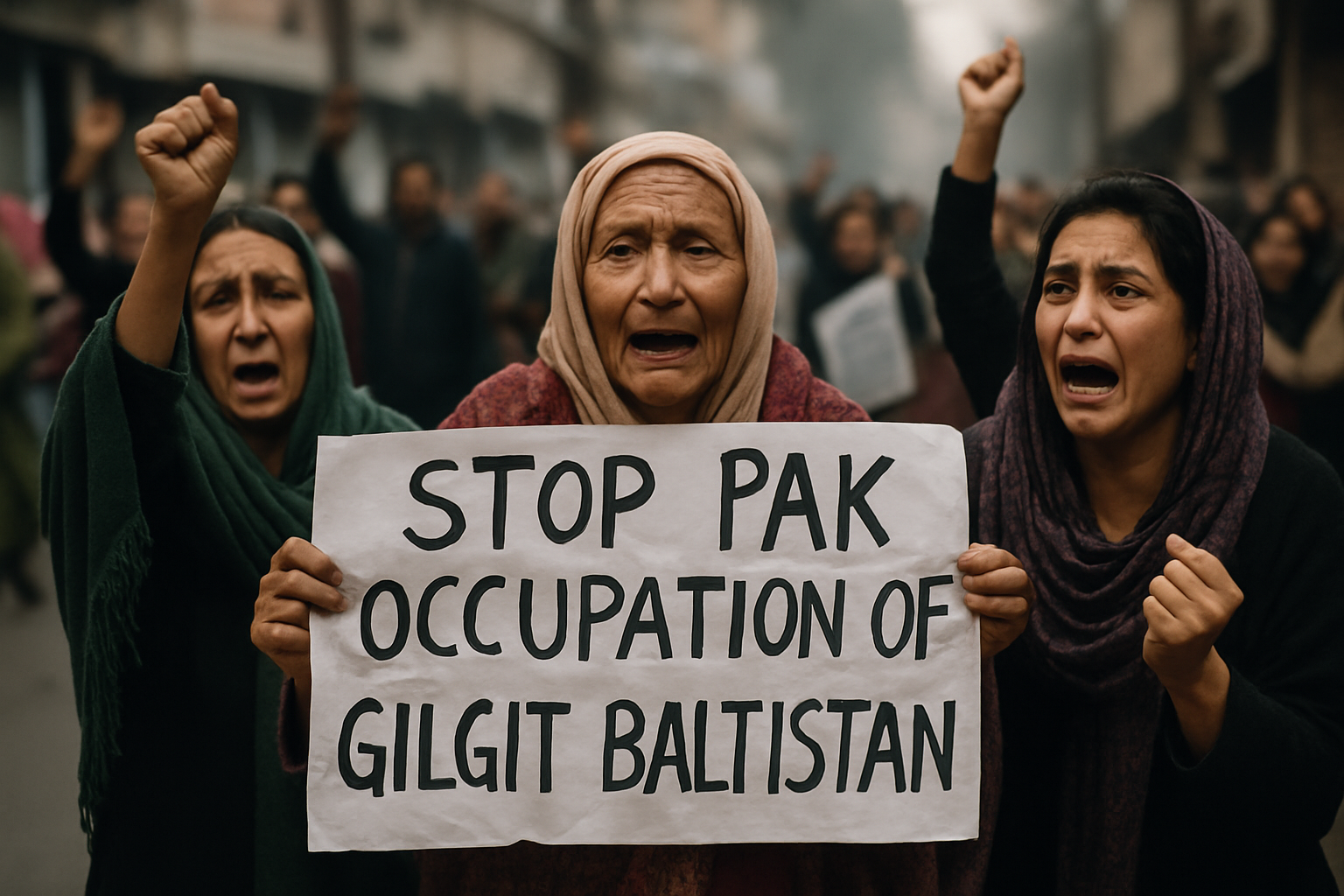Gilgit-Baltistan (GB) is no longer the quiet frontier Pakistan once assumed it would remain. Decades of political exclusion, economic exploitation, and coercive rule have pushed the region into sustained unrest. Each new protest exposes the fragility of Pakistan’s hold over a territory it administers without constitutional authority and claims without historical legitimacy. And in the process, Islamabad is strengthening the case India has made since 1947: that Gilgit-Baltistan is part of the legally acceded Union of India, currently under temporary Pakistani occupation.
Pakistan’s Constitutional Vacuum, India’s Legal Consistency
Pakistan’s refusal to integrate GB into its constitutional framework stems from a strategic dilemma: full integration would demolish its narrative on Jammu & Kashmir at the United Nations. Islamabad insists the region is “disputed”, yet it governs it as an occupied space—without representation, without rights, and without accountability.
India’s position stands on firmer ground. The Maharaja of Jammu & Kashmir signed the Instrument of Accession in October 1947, legally merging the entire princely state—including Gilgit-Baltistan—into India. Pakistan’s occupation remains a violation of this accession, a fact reaffirmed in India’s parliamentary resolutions and diplomatic positions for over seven decades.
GB’s current unrest is a direct consequence of this structural illegality. A people denied constitutional standing cannot expect justice from a state that has no legal basis to rule them.
A Population Squeezed for Resources, Not Served as Citizens
Despite its strategic location and abundant natural assets, GB remains impoverished. Pakistan’s interest in the region has consistently centred on geography and resources, not governance or welfare.
The region’s rivers power major Pakistani dams, yet GB itself endures blackouts lasting most of the day. Its mountains contain gold, copper, rare earth minerals, and gemstones worth billions of dollars, yet royalties never reach local communities. Its land provides Pakistan with access to China, yet its own infrastructure remains broken.
The people of Gilgit-Baltistan know this imbalance well. Many openly describe Pakistan’s role as extractive—a system where corporations, federal ministries, and military-linked entities profit from land they do not own and rivers they did not cultivate.
The China Factor and the Erosion of Local Autonomy
The arrival of the China–Pakistan Economic Corridor (CPEC) has deepened these tensions. GB is the entry point of the project, hosting the Karakoram Highway and key segments of China’s connectivity network.
For Pakistan, this makes GB even more valuable. For the people of GB, it makes their position even more precarious.
Land is acquired without consent, compensation is inadequate or delayed, and project routes are finalised in Islamabad and Beijing—not in Gilgit or Skardu. China’s expanding footprint reinforces the perception that the region is being used as a logistical corridor rather than treated as a political community worthy of representation.
India has repeatedly warned that CPEC routes passing through this territory violate its sovereignty. Pakistan’s decisions to tighten its grip only vindicate India’s longstanding objections.
A Rising Movement Against Pakistani Control
Protests in GB are no longer isolated. They emerge in waves, often with unprecedented coordination across districts. Residents demand an end to land grab policies, access to electricity and food at affordable prices, accountability for mineral and hydropower exploitation, the withdrawal of Pakistan’s repressive security apparatus, and recognition of their constitutional and political rights
Many slogans in recent years openly question Pakistan’s occupation. Others call upon the international community to take notice. Some even invoke India’s legal claim, noting that Pakistan uses the Kashmir dispute as a shield while denying GB’s people the dignity of genuine citizenship.
Islamabad’s Reliance on Coercion Exposes Its Weakness
Each time protests gather momentum, Pakistan responds with force. Activists face arrest under anti-terrorism laws. Journalists are silenced. Student leaders are detained. Entire districts experience internet shutdowns. The state behaves less like an administrator and more like a force occupying territory.
Such measures reveal Islamabad’s anxiety. A government confident in its legitimacy does not need to silence those it governs.
Why Gilgit-Baltistan Matters for India
India’s interests in the region are not merely territorial, but strategic and moral: GB is part of India’s territory recognised in the 1947 accession. Pakistan’s misrule strengthens India’s diplomatic case globally. The region’s instability exposes the weaknesses of CPEC, a project India has consistently opposed. Beijing’s involvement raises long-term strategic risks for India along the northern arc.
For New Delhi, GB’s turmoil emphasises the consequences of Pakistan’s unlawful occupation and highlights the resilience of the people resisting exploitation.
A Turning Point in the Occupied Territories
The people of Gilgit-Baltistan are making themselves heard. Their calls for dignity, representation, and control over their land carry an unmistakable political message: Pakistan’s rule in the region is neither legitimate nor sustainable.
For India, this growing unrest reaffirms its position that Gilgit-Baltistan is an occupied territory where Pakistan has failed ethically, politically, and administratively. The crisis unfolding in GB is not just a regional governance issue—it is a reckoning with the consequences of an occupation carried out for strategic depth rather than democratic responsibility.
As long as Pakistan continues to deny rights while stripping resources, Gilgit-Baltistan will remain a region in revolt. And every protest strengthens the argument India has made since 1947: a claim rooted in law, history, and now increasingly validated by the people of the region themselves.

